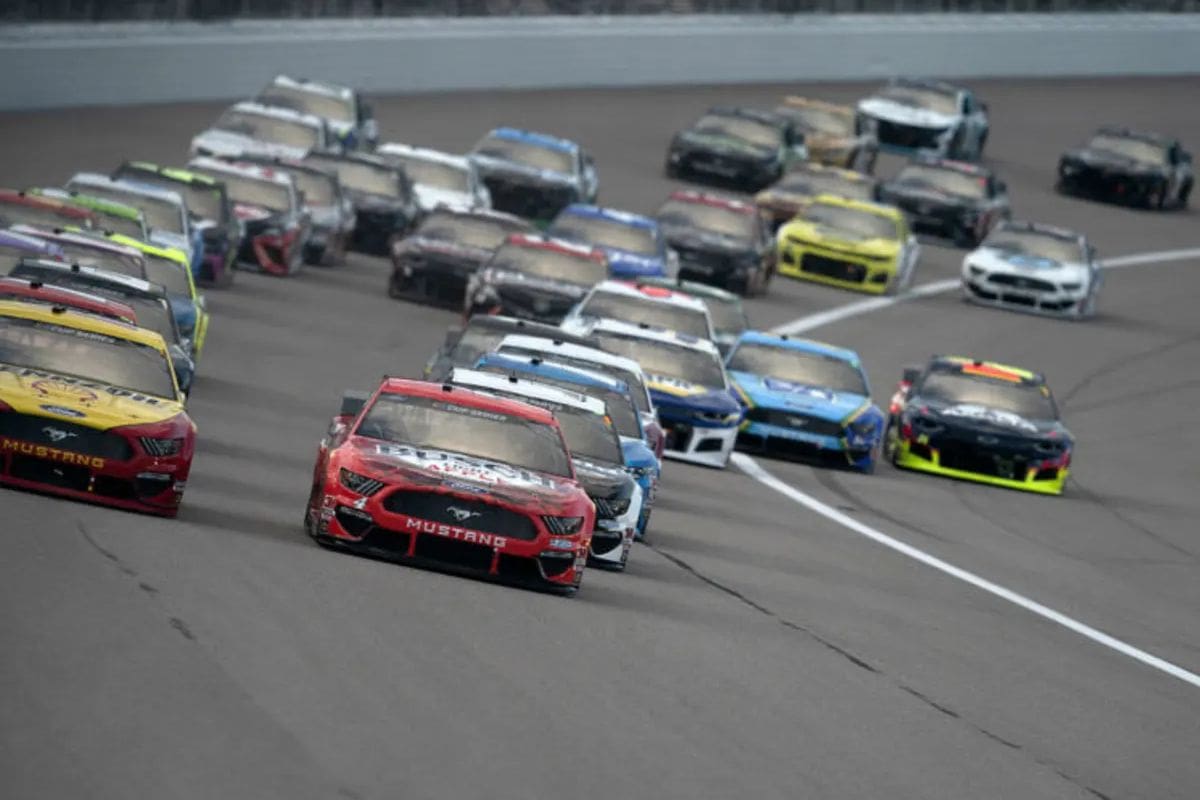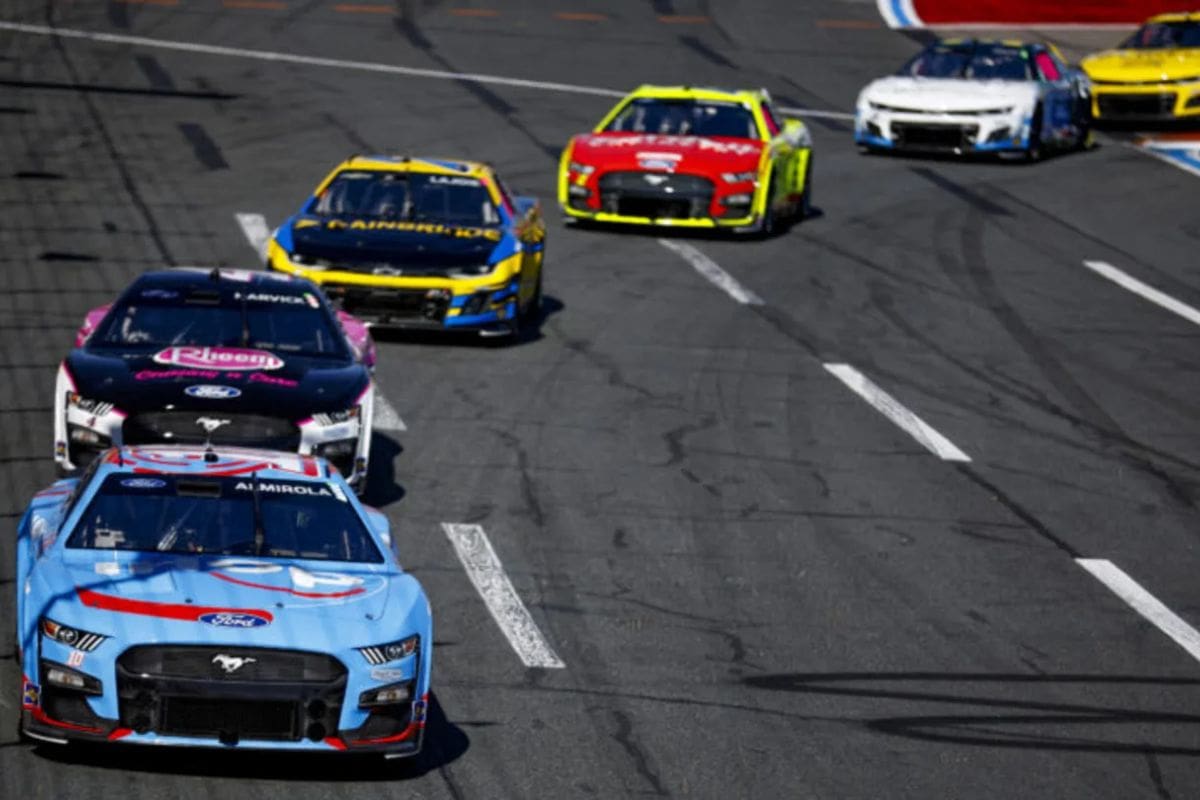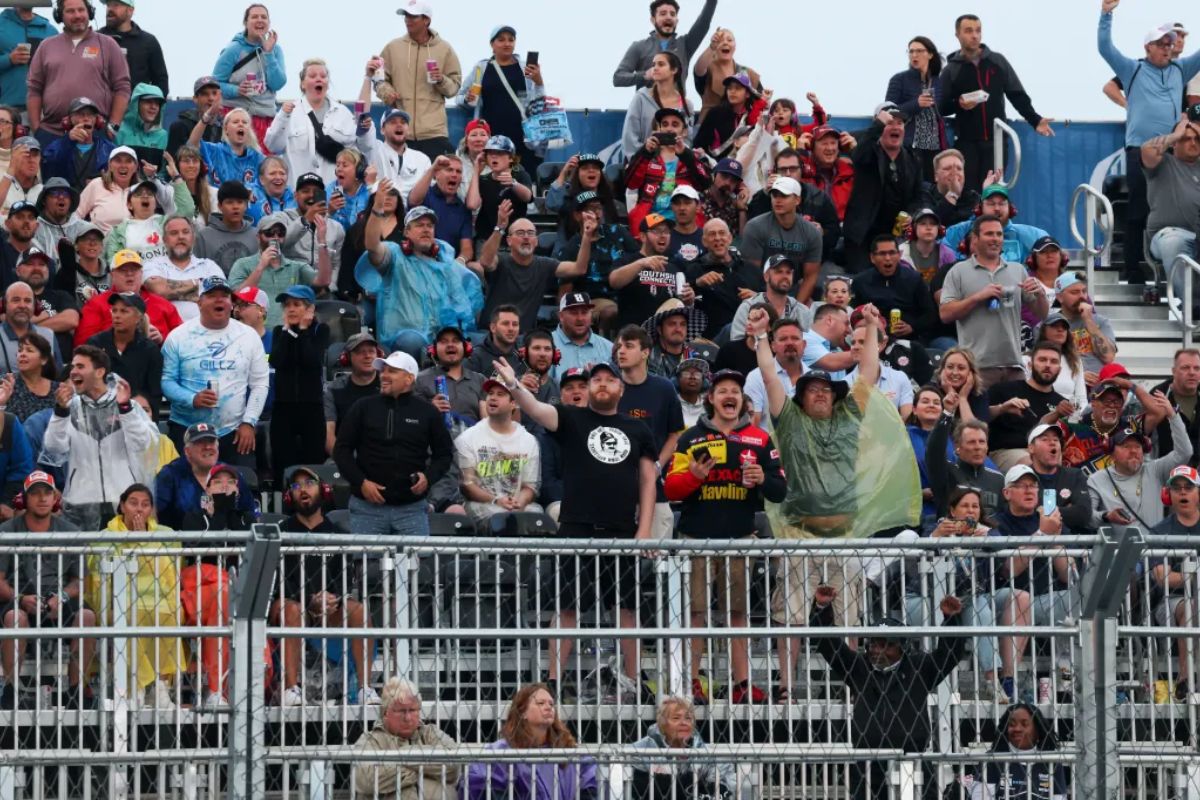Chris Buescher’s Intentional Hooking Controversy: The recent controversy surrounding Chris Buescher‘s intentional hooking at the Cook Out Southern 500 has ignited a fierce debate within the NASCAR community, highlighting the intricate interplay between competitive aggression and the principles of sportsmanship. While many fans praised Buescher’s audacity, viewing it as a hallmark of racing spirit, critics lamented NASCAR’s failure to impose penalties, raising questions about the integrity of officiating standards. This incident intensified fan engagement and posed a critical challenge for NASCAR as it seeks to maintain its reputation amid evolving expectations of fairness and excitement in the sport.
Key Highlights
- Chris Buescher’s intentional hooking driving during the Cook Out Southern 500 sparked mixed reactions among fans and analysts regarding aggressive racing tactics.
- NASCAR’s lenient response to the incident was applauded by many fans who appreciate the sport’s authentic racing essence and competitive spirit.
- The lack of penalties for Buescher’s actions raised concerns about officiating consistency and the balance between aggression and unsportsmanlike conduct.
- In-car evidence suggested Todd Gilliland’s loss of control was accidental, further complicating perceptions of Buescher’s actions during the race.
- Fan engagement on social media highlighted Buescher’s popularity increase, reflecting broader debates on racing ethics and competitive integrity within NASCAR.
Incident Overview at Darlington Raceway
The incident at Darlington Raceway during the Cook Out Southern 500 unfolded dramatically on Lap 323, as Chris Buescher and Todd Gilliland engaged in a tightly contested battle for position within the top 15. This crucial point in the race is often marked by heightened tension, as drivers jockey for placement that can greatly influence their overall standings.
As they exited Turn 2, the competitive nature of the moment escalated when Gilliland’s car made contact with Buescher’s vehicle, resulting in a push towards the outside wall.
The initial contact initiated a chain reaction that would ultimately define the incident. Following the impact, Buescher’s car veered away from the wall, colliding with the right-rear corner of Gilliland’s vehicle. This subsequent impact caused Gilliland’s car to spin across the track and crash into the outside wall, leading to considerable damage.
Such occurrences are not uncommon in the heat of competition, especially in close quarters at a track like Darlington, known for its narrow lines and challenging corners.
Despite the extensive repairs required, Gilliland’s team displayed commendable resilience, managing to mend his car sufficiently to enable him to finish the race in 17th place.
The incident raised questions about the dynamics of racing etiquette and left fans and analysts pondering the implications for both drivers moving forward. This moment serves as a reminder of the fine balance between aggressiveness and caution in the environment of NASCAR racing.
NASCAR’s Response to the Incident
NASCAR’s response to the Darlington incident highlighted a commitment to maintaining the integrity of racing while balancing the need for competitive spirit.
In addressing the controversy, Elton Sawyer, NASCAR’s Senior Vice President of Competition, emphasized the organization’s philosophy regarding contact in racing. He stated, “You look at Darlington; it’s tight. It’s hard racing; we’ve said that for years. We want our racing to be organic; we want them to go out and race hard, so we didn’t see anything that crossed the line.”
This perspective highlights NASCAR’s intention to permit robust competition without excessive intervention.
The decision not to penalize Chris Buescher reflected several key considerations:
- Organic Racing: Acknowledgment of the natural intensity of racing at tracks like Darlington.
- Contact Sport: Recognition that incidents of contact are an inherent part of NASCAR.
- Minimal Damage: Buescher’s car sustained no damage, allowing him to finish competitively.
- Playoff Implications: Both drivers were outside the playoff competition, diminishing the necessity for punitive measures.
- Fan Reception: The lack of penalties aligned with fan expectations for thrilling racing.
Fan Reactions to NASCAR’s Decision
Many fans expressed their approval of NASCAR’s decision not to penalize Chris Buescher, viewing it as a demonstration of the sport’s commitment to preserving the essence of racing. This sentiment emerged prominently on social media platforms, particularly Reddit, where discussions flourished surrounding the incident involving Buescher and Todd Gilliland. Fans lauded NASCAR’s leniency, interpreting it as a recognition that not all racing incidents warrant punitive measures, especially when the outcome does not incite widespread controversy or alter competitive integrity.
“I’m a proud Gilliland Glazer but I’m surprised people even thought that was more than just racing.” – fans’ reaction
The prevailing narrative among supporters emphasized the importance of maintaining an authentic racing atmosphere, where drivers can engage in spirited competition without the omnipresent fear of penalties for aggressive tactics. Buescher’s actions, while controversial, were perceived as part of the sport’s allure—an embodiment of the fierce rivalries that make NASCAR compelling.
Conversely, while some applauded the decision for its leniency, others remained cautious, arguing that a lack of consistent enforcement could set a precedent for future incidents.
Nonetheless, the immediate fan reaction suggests a robust endorsement of NASCAR’s approach, highlighting a complex relationship between regulatory oversight and the raw, unpredictable excitement that defines auto racing.
Support for NASCAR’s Lenient Approach
Amidst the ongoing debate surrounding racing conduct, a substantial portion of the fanbase has rallied behind NASCAR’s decision to adopt a lenient approach regarding the incident involving Chris Buescher and Todd Gilliland. Many supporters view the incident as a natural aspect of racing.
Supporters of NASCAR’s stance highlight several key points:
- Normalcy of Racing Incidents: Fans believe that run-ins like this are commonplace, not warranting severe penalties.
- In-car Evidence: Observations from in-car footage indicate that Gilliland lost control, suggesting the incident was a racing accident rather than intentional misconduct.
“From the in-car, it was clear he had no control of the car when that happened.”- fans’ reaction
- Comparison to Other Motorsports: Many fans appreciate that NASCAR does not penalize for every minor incident, contrasting it with Formula 1’s stricter regulations.
“Makes sense. NASCAR doesn’t need to start penalizing for every little thing like f1 does.”- fans’ reaction
- Promotion of Intense Racing: A lenient approach is seen as conducive to more competitive and engaging races, allowing drivers to race aggressively without fear of constant penalties.
This sentiment reflects a collective understanding among fans that NASCAR’s leniency fosters a more authentic racing environment. The prevailing belief is that while safety remains paramount, allowing for some degree of rough racing preserves the excitement and unpredictability that fans cherish in NASCAR events.
Additional Fan Perspectives
The ongoing discourse surrounding Chris Buescher’s incident with Todd Gilliland has prompted a variety of opinions among fans, reflecting the complexity of racing dynamics. Many fans acknowledge the inherent difficulties in maintaining control of a vehicle after experiencing a collision, particularly when one is forced into the wall. One supporter articulated that while it is conceivable Buescher might have exploited the situation, the subtleties of racing make it virtually impossible for NASCAR officials to ascertain intent in such scenarios.
“It’s really hard to keep the car perfectly straight when you just got walled and are bouncing off. even if Buescher used that to get away with one, nascar would never be able to know the difference. good no call”- fans’ reaction
Conversely, another fan emphasized the ambiguous nature of the incident, asserting that it fell within a “gray area.” This perspective highlights the importance of plausible deniability in motorsport, where the line between intentional actions and racing incidents can be exceedingly thin. In this light, the fan commended NASCAR’s officials for refraining from imposing penalties, recognizing the absence of clear evidence to warrant such action.
“It’s plausibly deniable, so I see their perspective.” – fans’ reaction
Both viewpoints illuminate the intricate balance between competition and the regulatory framework within NASCAR. As fans engage in this dialogue, they reveal a deeper understanding of the sport’s dynamics, illustrating that incidents like Buescher’s are often clouded by subjective interpretations.
News in Brief: Chris Buescher’s Intentional Hooking Controversy
The controversy surrounding Chris Buescher’s intentional hooking during the Cook Out Southern 500 highlights the ongoing struggle within NASCAR to balance competitive aggression with the principles of sportsmanship. This incident not only ignited passionate discussions among fans and analysts but also prompted NASCAR to reconsider its officiating policies. Ultimately, the situation emphasizes the complexities of fostering an exciting racing environment while maintaining regulatory fairness, reflecting the evolving dynamics of motorsport culture.
ALSO READ: Chris Buescher Reacts After Playoff Heartbreak: “That’s the System”



